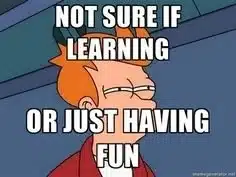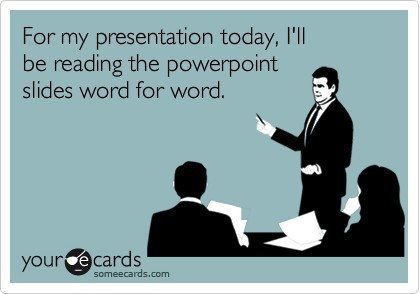Recently I received an opportunity to attend a training workshop as a participant. The program started with a brief on the day’s plan, with two speakers facilitating the entire show. I was all set to learn something new as a participant. I enjoyed the whacky energizers; they enthused passion in the room and I was impressed! Overall, I was waiting to learn more. In the back of my mind, my inner trainer was also evaluating and anticipating each move of the trainer. I thoroughly enjoyed the complete experience.
I spent the full day of learning with the trainers, but for a few others it wasn’t much of a learning experience. The trainers pulled off a good show, but not a great one.
Here are 5 reasons that make the difference between a good and a great workshop:
- Focusing on activities and not insights: There has been a wrong trend established
 within the training industry stating that the more activities you conduct the better your program will be. The same was true in this program; the trainer made us do a series of activities without letting us know the purpose. It was as if we were playing football without keeping score. There were lots of activities happening but no meaningful outcome at the end of the day. I learned that it is not the number of activities that make a program successful, but the number of insights a participant takes away from the program.
within the training industry stating that the more activities you conduct the better your program will be. The same was true in this program; the trainer made us do a series of activities without letting us know the purpose. It was as if we were playing football without keeping score. There were lots of activities happening but no meaningful outcome at the end of the day. I learned that it is not the number of activities that make a program successful, but the number of insights a participant takes away from the program.
- Not being in sync: As the program started, everyone was a little hassled because they could sense confusion between the two trainers. Both were going back and forth to one other, asking about and clarifying the activities planned for the day. We could see them covering up their unplanned flow of the program with artificial smiles. I learned that a smile is not the answer to mistakes. Instead, being in sync with your fellow trainer(s) or team before the workshop gives complete clarity on roles and responsibilities.
- Not knowing how to use a prop: Using a prop can be the best way to put across a message, but if you carry the prop in your hand for the majority of the time, it becomes a distraction. The prop used by our trainer was an electric bulb, which could become a weapon in your hand if you are an animated speaker. Instead use the prop, draw out the message, and then keep your hands free. Simply put, “minimize distraction.” People have come to see you perform (and have come to learn); hence you should eliminate any distractions that might come in the way.
- Casualness leads to casualties: It’s good to be friendly with participants but if you are casual throughout the program, you are passing the same casualness to your participants. Ignoring participants who are disinterested can be fatal. In every program you will find a few participants who will go beyond the protocols for the day (taking smoking breaks repeatedly, having private discussions on Kate Hudson’s affair, not listening to the instructions, etc.). If you ignore them for too long, you permit them to carry on with their casual behaviour, which ultimately affects the program. Instead, give them your attention and channelize their energy productively.
- Poor first impression: The first impression people form of you is when you haven’t even said a word yet. They look at you, specifically noticing your attire, hygiene, and conduct and they observe everything subconsciously. When I saw the trainer wearing shabby trousers with dirty shoes I thought, “If he is not serious about his attire, why would he be serious about the program?” My learning is dress to impress and leave a powerful first impression.
I did not regret being a part of the program because it gave me insights of how to take care of subtle nuances that can make or break a workshop. Happy Learning!










